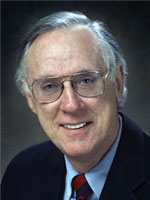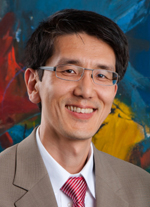Overview

The International Journal of Applied Linguistics (InJAL) publishes articles that explore the relationship between expertise in linguistics, broadly defined, and the everyday experience of language. Its scope is international in that it welcomes articles which show explicitly how local issues of language use or learning exemplify more global concerns.
Aims and Scope
The International Journal of Applied Linguistics publishes articles that focus on the mediation between expertise about language and experience of language. The journal seeks to develop an awareness of the way language works, how it affects peoples’ lives, and what interventions are desirable and feasible to make in differing domains of language use and learning.
Articles in InJAL should explicitly address the ‘So what?’ question: How do ideas, observations, results, suggestions presented in a paper relate to actual ‘real world’ problems involving language? How could or should what is discussed in a paper be followed up, or followed through, to practical proposals? Is there a convincing explicit connection between the disciplinary areas the author draws on and the domains where people engage with language? The journal thus conceives of applied linguistics as essentially being a process which seeks a negotiated settlement of language problems through the reconciliation of different and sometimes conflicting perspectives.
Within all possible domains and fields of applied linguistics, InJAL focuses on those most closely related to language use and learning in society: language policing, as the interplay of policy and practice; language in professions as the main domains of adult socialization; language in public discourse and media, the link between all other domains in an increasingly globalized and specialized world; translating between languages and registers, as the default mode of communication in a multilingual and heterogloss work-devided society. A fifth InJAL strand focuses on hidden topics in applied linguistics: swearing and taboo language for instance, all the yet under researched and delicate issues that counterpoint decent societal language use and its established investigation.
The language of this journal is English, but its concerns are by no means confined to what goes on in English native-speaking communities. We want to encourage submissions that show what issues in applied linguistics arise in different regions and cultures, and how far they might call for different perspectives and different kinds of mediation. What we are interested in is how the particular and the general are inter-related – in short, papers which are international in the sense that they show explicitly how local issues of language use or learning exemplify more global concerns.
Society Information

The International Journal of Applied Linguistics (InJAL) is published in co-operation with AILA since 2007. The union promotes the goal of encouraging international scholarship that both the Journal and the Association share.
AILA is the acronym for Association Internationale de Linguistique Appliquée or International Association of Applied Linguistics.
AILA is the international federation of national or regional associations of Applied Linguistics. Through its member associations, AILA currently has a membership of more than 8.000 individuals worldwide who as researchers, policy makers or practitioners are active in the field of Applied Linguistics.
Applied Linguistics is an interdisciplinary field of research and practice dealing with practical problems of language and communication that can be identified, analysed or solved by applying available theories, methods and results of Linguistics or by developing new theoretical and methodological frameworks in Linguistics to work on these problems. Applied Linguistics differs from Linguistics in general mainly with respect to its explicit orientation towards practical, everyday problems related to language and communication.
The problems Applied Linguistics deals with range from aspects of the linguistic and communicative competence of the individual such as first or second language acquisition, literacy, language disorders, etc. to language and communication related problems in and between societies such as e.g. language variation and linguistic discrimination, multilingualism, language conflict, language policy and language planning.
AILA is a Non-Governmental Organization (NGO) having FCR (Formal Consultative Relations) with UNESCO.
Visit AILA’s website for further information.
Free Online Sample Issue
You can now access a free online sample issue of the International Journal of Applied Linguistics – simply click here
Editorial Board
Editors
Janina Brutt-Griffler
The State University of New York at Buffalo Graduate School of Education
505 Christopher Baldy Hall
Buffalo, New York 14260
bruttg@buffalo.edu
Daniel Perrin
Institute of Applied Media Studies
Zurich University of Applied Sciences
Zur Kesselschmiede 35
P.O. Box, CH-8401 Winterthur
Switzerland
daniel.perrin@zhaw.ch
Editorial Assistant
Jess Harris
injal@editorialoffice.co.uk
Advisory Board
Juliane House (Hamburg), Sue Gass (Michigan State), Kurt Kohn (Tübingen), Anna Mauranen (Helsinki), Tim McNamara (Melbourne), Kumiko Murata (Waseda), Dennis Preston (Michigan State), Ben Rampton (London), Barbara Seidlhofer (AILA representative), Merrill Swain (Ontario), Arturo Tosi (London), Henry Widdowson (Vienna)

 Dr. William Barba, Professor in the Department of Educational Leadership and Policy, welcomed all of the parents at the New Student Orientation over the summer 2013. There were eight sessions in total and each session had between 350-400 parents attending. Dr. Barba gave the parents a background of what to expect in college and what obstacles and benefits that their students might find at a research university such as UB.
Dr. William Barba, Professor in the Department of Educational Leadership and Policy, welcomed all of the parents at the New Student Orientation over the summer 2013. There were eight sessions in total and each session had between 350-400 parents attending. Dr. Barba gave the parents a background of what to expect in college and what obstacles and benefits that their students might find at a research university such as UB.


 An invitational international symposium held in April 2013 honored Dr. Philip Altbach, former University at Buffalo Professor and founder of GSE’s Center for Comparative and Global Studies in Education, who went to Boston College to found the Center for International Higher Education, the principal center of its kind in the world. The symposium introduced a Festschrift in honor of Dr. Altbach published in 2013 by Springer entitled At the Forefront of International Higher Education. Dr. Johnstone’s chapter in the Festschrift is Tuition Fees, Student Loans, and Other Manifestations of Cost-Sharing: Variations and Misconceptions.
An invitational international symposium held in April 2013 honored Dr. Philip Altbach, former University at Buffalo Professor and founder of GSE’s Center for Comparative and Global Studies in Education, who went to Boston College to found the Center for International Higher Education, the principal center of its kind in the world. The symposium introduced a Festschrift in honor of Dr. Altbach published in 2013 by Springer entitled At the Forefront of International Higher Education. Dr. Johnstone’s chapter in the Festschrift is Tuition Fees, Student Loans, and Other Manifestations of Cost-Sharing: Variations and Misconceptions. 
 GSE Dean Jaekyung Lee has been named an honorary
GSE Dean Jaekyung Lee has been named an honorary 

